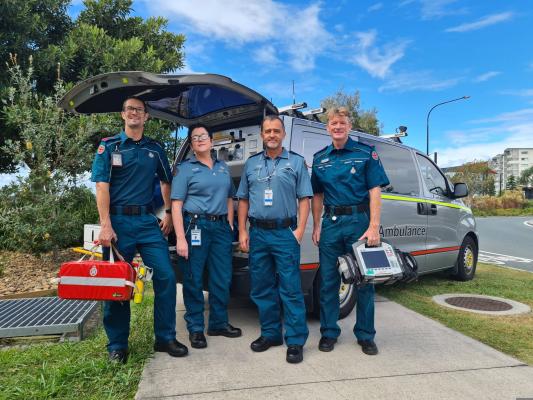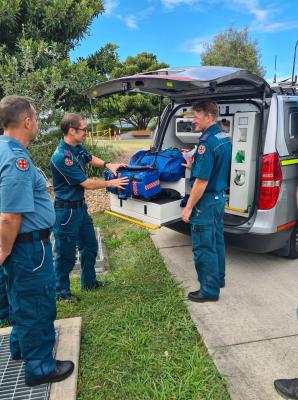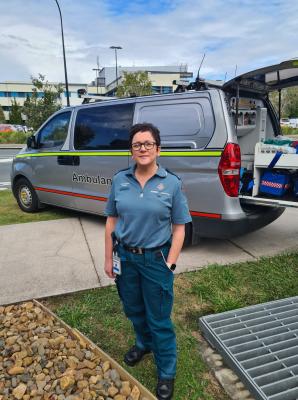A highly successful collaboration between the Queensland Ambulance Service (QAS) and Queensland Health is set to benefit Sunshine Coast patients experiencing a mental health crisis.
This will be done by including a Senior Mental Health Clinician in the frontline ambulance response.
QAS Mental Health Response Program Director Sandra Garner said following a successful pilot program in the South East Queensland, the Mental Health Co-responder Program is being expanded further afield to Sunshine Coast, Townsville and Cairns.
“The program pairs a specialist Paramedic with a Senior Mental Health Clinician from the HHS to provide a first, timely and appropriate health response to patients experiencing a mental health crisis,” Ms Garner said.
“The results speak for themselves, with the QAS able to facilitate access to appropriate follow up and referrals for more than 1,000 patients during the pilot period in the Metro South, West Moreton and Gold Coast regions.
“This means better healthcare outcomes for Queenslanders and a reduction in Emergency Department presentations, which has flow on effects for the entire health system.”
Last year the QAS responded to more than 60,000 people experiencing a mental health crisis, a 23 per cent increase from the previous year, representing around 13 per cent of QAS Triple Zero (000) calls.
“More than 80 per cent of people experiencing a mental health crisis, accessing services via Triple Zero (000), are in a complex, multi-faceted crisis, unfortunately including suicide crisis,” Ms Garner said.
“Historically, most people seen by paramedics in a mental health crisis were transported to a hospital Emergency Department.
“It’s recognised that first responders are in a unique position to determine the course and outcome of a patient’s mental health crisis, which is why the expansion of this service is so important.”
QAS Commissioner Russell Bowles said the QAS was always looking for innovative ways to respond to the community.
“This is the same assessment and treatments which would otherwise be provided in a hospital, but they’re undertaken in the patient’s own environment in approximately 90 minutes,” Commissioner Bowles said.
“Around 65 per cent of patients are able to stay at home with tailored treatments and we know increased involvement and utilisation of carers in an individual’s own comfortable environment in a crisis, is exactly what those with a lived experience of mental health need.”










